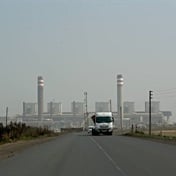
During the festive season, Khoseni, a friend of mine from my village, asked why we should care about our investment-grade rating by Moody’s Investors Service.
“What do these institutions have to do with us as ordinary South Africans?” he protested. “Well, a lot, actually,” I responded.
Two months ago, Moody’s maintained its investment-grade rating on South Africa. But it changed our sovereign credit rating outlook from stable to negative, citing low economic growth, a growing debt burden and upward revision of the fiscal deficit.
The downside risks to our investment-grade credit rating are significant. Credit ratings agencies are not without fault. However, their rating decisions have material consequences on countries’ economies.
Ratings agencies play a major role in enabling investors to exercise their choices about where and when to invest. Before investing or lending money to government or companies, financial investors, through ratings agencies, assess the willingness and ability of governments or corporates to pay back their money on time.
The credit rating process is no different to a credit assessment that a bank performs when one applies for a loan – the bank will not lend you money if it thinks that you will not pay it back. The more creditworthy a natural or juristic person is, the lower the interest rate that person would be charged by the bank. The higher the probability for default, the higher the cost of borrowing.
Governments borrow funds through bonds to finance budget deficits. South Africa’s government debt is R3 trillion, and is projected to rise to R4.5 trillion – that is 70% of GDP – in 2022. Similarly, if a country is considered to be a good creditor and there is not much risk that it will default on its debt, that country will get a good credit rating.
The rating range extends from the best (AAA) to the worst (D – default). It depicts the possibility of debt nonpayment. A triple-A rating means that the ability of the issuer – a legal entity that develops, registers and sells tradable financial assets for the purpose of financing its operations – to meet its obligations is extremely strong, while a triple-B rating means there is some risk for default, but the entity is still worth investing in (investment grade). However, if economic conditions worsen, atriple-B entity is at a high risk of defaulting. Anything below BBB is non-investment grade, or “junk”.
South Africa received a junk rating from two agencies – Fitch Ratings and S&P Global – in 1995. Between 1996 and the early 2000s, the country gradually received favourable credit ratings due to improvements in economic growth, meaningful progress on reforms and political certainty, as well as good governance and stability in state-owned enterprises.
Since the 2008 global financial crisis, South Africa has been experiencing low economic growth and growing public debt, leading to the downgrades.
The assessment of the ratings agencies can encourage investment as investors use credit rating assessments to determine whether they will invest their money in certain companies and nations. Likewise, ratings agencies can discourage investments, as pension funds are generally prohibited from investing in non-investment-grade sovereigns.
In general, a credit rating signifies a country’s overall ability to provide a profitable investment environment. It reflects factors such as economic growth, levels of public debt, levels of investment flows and political stability.
A downgrade of South Africa to junk by Moody’s would imply that government bonds will be exited from the Citi World Government Bond Index – a major global index that tracks investment-grade debt.
It would further imply that all fund managers whose mandate limits them to invest in investment-grade assets would be forced to sell South African bonds. This may generate some capital outflows, which would worsen the current account balance and result in a depreciating rand exchange rate against other major currencies.
However, this could be mitigated if those fund managers whose mandates do not restrict them to investment-grade assets were to take up the bonds, but at a relatively higher cost.
Another effect of a credit rating downgrade is that the interest rates paid by government would go up. Just like with private individuals, those who are more creditworthy tend to get lower rates from banks, and vice versa.
A downgrade for government would mean that the risk of default had increased, thus lenders would demand a higher rate of return. This would have a devastating effect on already fast-growing government interest payments.
Read: Bond fund exodus well under way as credit rating teeters
Growing public debt would crowd out the country’s social spending priorities – for example, funds for healthcare and social grants would be used to service government’s interest payments. Interest payment diverts fiscal resources away from infrastructure and other economic growth-enhancing programmes, ultimately resulting in high rates of unemployment.
Moreover, the credit ratings of banks and many corporations are tied to those of government. Most ratings agencies have policies in place that limit a corporate issuer’s ability to be rated above its sovereign country debt. Thus, in general, no private borrowers or listed companies would be assigned a rating higher than their country’s sovereign rating. That means the borrowing costs for corporations and banks would also go up, affecting the profitability of firms.
As a result, banks and corporations faced with increased borrowing costs would pass them on to consumers by way of higher interest and bank charges, and they would cut back on lending and investment. Reduced investments from banks and corporates would lead to retrenchments or, worse, factory shutdowns, resulting in large-scale job losses. All these factors would slow the economy down, which, in turn, would generate negative feedback and put more pressure on government’s future credit rating.
Financial system stability is important in this equation. So far, South Africa has done exceptionally well compared with its peers when it comes to financial stability.
However, the profitability of banks will be negatively affected by a downgrade because consumers might find it difficult to service their debt.
So, Khoseni, we must avoid a further downgrade based on our policy choices that generate a more inclusive economic growth. The economic strategy document released last year by Finance Minister Tito Mboweni, which has crystallised many aspects of the National Development Plan, is a step in the right direction when it comes to addressing many of the concerns raised by ratings agencies.
. The new Integrated Resource Plan has been gazetted;
. The infrastructure fund, which will mobilise public and private sector funding for infrastructure, is being rolled out;
. The country’s visa regime is being greatly simplified;
. The unabridged birth certificate requirement for minors visiting the country has been abolished;
. A number of industrial parks have been upgraded, with approved demarcation of more special economic zones; and
. Cabinet has instructed the Independent Communications Authority of SA to implement the licensing of broadband spectrum.
These and other interventions will ease bottlenecks, create new opportunities for small and medium-sized businesses, and allow for greater investment in public infrastructure for the provision of services.
- Masondo is deputy finance minister




 Publications
Publications
 Partners
Partners









